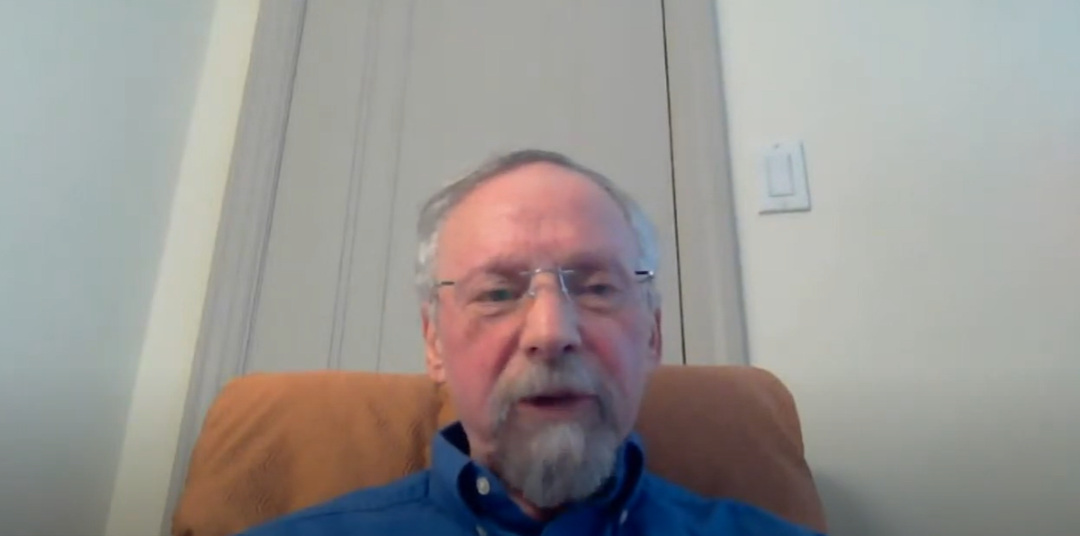Jim Baller, Champion of Municipal Broadband, Fights the Fight for More Than 25 Years
August 1, 2020 — Jim Baller has dedicated much of his life to advocating for universal high capacity broadband. Baller was inspired to become a broadband advocate when he had a lull in his practice as an energy attorney. He began doing pro bono work for the American Public Power Association, a natio
Jericho Casper

August 1, 2020 — Jim Baller has dedicated much of his life to advocating for universal high capacity broadband.
Baller was inspired to become a broadband advocate when he had a lull in his practice as an energy attorney.
He began doing pro bono work for the American Public Power Association, a national association representing the interests of America’s 2,000 publicly-owned electric utilities, in the early 1990s.
During this time, Baller wrote a white paper for APPA comparing the emerging period in telecom to the period of electrification in the power industry.
APPA and many of its members were growing increasingly concerned that the history of the power industry would repeat itself in the telecom era. Many rightfully feared that phone and cable companies would focus on profitable urban markets, thus leaving rural communities behind in the emerging era of advanced digital communications.
Baller’s paper contributed to a national conversation about using the public power model to regulate the telecom era.

Screenshot of Jim Baller from a Broadband Breakfast Live Online event
In 1995, Baller and his colleagues began what would become a long, brutal fight against legislation preventing municipal broadband.
His attempt was able to impact the Telecommunications Act of 1996.
In response to a Texas law passed in 1995, when incumbent providers were first lobbying for states to adopt legislation against municipal broadband, APPA worked to get language inserted into Section 253 of the Telecom Act that they thought would stop state laws preventing municipal broadband once and for all.
APPA’s language declared that no state statute, regulation or other legal requirement may prohibit the ability of “any entity” to provide any interstate or intrastate telecommunications service.
When the decision reached the Supreme Court of the United States, in Nixon v. Missouri Municipal League, the Court found they “couldn’t be sure that Congress meant “any entity” to apply to public entities, and not just to private entities, so it therefore had to find that Section 253 did not authorize the [Federal Communications Commission] to preempt the state barriers in question,” Baller told Broadband Breakfast.
Attempting to shape a National Broadband Plan
But Baller did not give up on his quest.
In 2008, Baller and his colleagues began to work on a call to action, which they planned to send to whichever party won the 2008 presidential election.
Working on the document forced the coalition to drill down into their common values, goals and objectives. The crew went on to form the U.S. Broadband Coalition, establishing six committees to advise the new administration on major issues.
“There was so little understanding of the big picture at the time,” Baller recalled in a Broadband Breakfast Live Online event Wednesday.
In 2009, Congress passed the American Recovery and Reinvestment Act, which reflected several of the ideas included in the call to action, such as the need for substantial federal support for broadband deployment and adoption.
Congress created the Broadband Technology Opportunity Program and the Broadband Initiatives Program, the first significant federal broadband subsidy programs unconnected to the universal service fund. The measure also required the FCC to develop a National Broadband Plan.
While federal recognition of these demands was a big win for Baller and his colleagues, he did not stop his efforts there.
In 2014, alongside Joanne Hovis, Baller co-founded the Coalition for Local Internet Choice, which is now comprised of more than 600 organizations and individuals who support the authority of local communities to make choices surrounding broadband internet.
CLIC has participated in numerous battles over barriers to public broadband initiatives. Members often champion the importance of local broadband and defend municipal broadband against state governments.
Baller maintained that the availability of municipal broadband impacts “economic development, educational opportunity, public safety, access to affordable modern health care, smart transportation, energy efficiency, environmental protection, cost-effective government service and so much more.” He has written extensively on the relationship between broadband and economic development.
“It would be great if barriers to local internet choice were suddenly to disappear, thereby removing CLIC’s main reason for being,” Baller said. “Unfortunately, we do not see that happening anytime soon. So we’ll just have to keep up the good fight.”









Member discussion